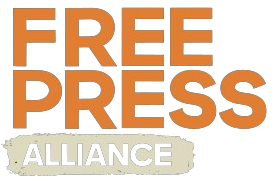Journalists face increasing digital threats, from cyberattacks to unauthorized surveillance. Protecting sensitive information is crucial for safeguarding sources and ensuring press freedom. Here are five essential cybersecurity strategies every journalist should implement.
- Use Encryption Tools for Secure Communication
Encryption ensures the confidentiality of your messages and files. Use Signal for secure messaging and ProtonMail for encrypted emails. When sharing sensitive documents, platforms like OnionShare allow for anonymous and secure file transfers.
- Strengthen Your Digital Identity with Strong Passwords and Two-Factor Authentication (2FA)
Create strong, unique passwords using a password manager like Bitwarden or 1Password. Enable two-factor authentication (2FA) on all accounts, preferably using an app like Authy instead of SMS, which can be intercepted.
- Protect Your Online Activity with a VPN and Secure Browsing Practices
A Virtual Private Network (VPN) encrypts your internet connection, shielding your online activity from tracking. Use reputable services like Mullvad or ProtonVPN. When accessing sensitive information, consider using Tor Browser for added anonymity.
- Backup and Encrypt Your Files Regularly
Store encrypted backups on external drives and secure cloud services like Tresorit or Sync.com. For highly confidential data, use tools like VeraCrypt to encrypt files, preventing unauthorized access.
- Stay Updated on Cybersecurity Threats and Best Practices
Cyber threats evolve constantly. Stay informed by following organizations like Access Now, Electronic Frontier Foundation (EFF), and Citizen Lab to learn about the latest security risks and protective measures.
For journalists, digital security is not optional, it’s a necessity. Implementing these five strategies will help protect sensitive information, safeguard sources, and defend press freedom. Stay vigilant and proactive to reduce risks and ensure your work remains secure from digital threats.

